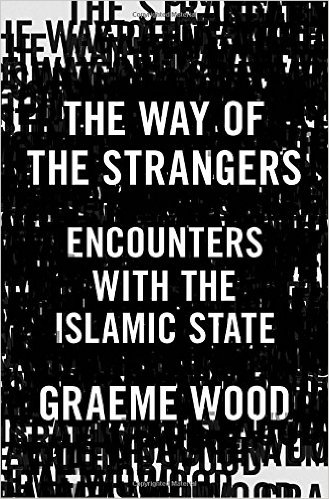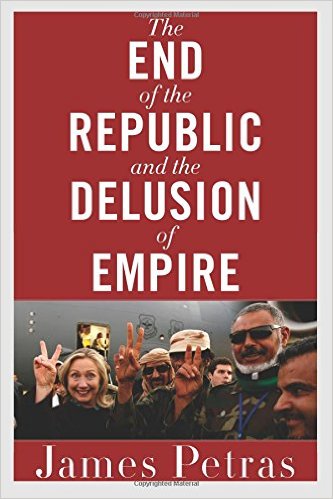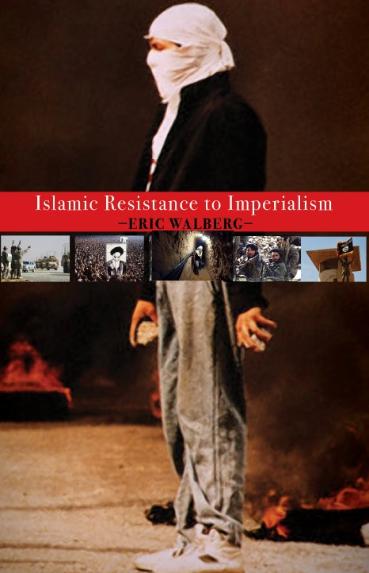 Review of Graeme Wood, The Way of the Strangers: Encounters with the Islamic State, Random House, 2016.
Review of Graeme Wood, The Way of the Strangers: Encounters with the Islamic State, Random House, 2016.
Wood is the most prominent media star exposing ISIS today. A Yale professor, Council of Foreign Relations guru, his articles on ISIS have appeared in the New York Times, The Wall Street Journal, The Atlantic, and on and on. He has an ambitious agenda, instructing the lay reader in Islamic theology and jurisprudence as he travels from one leading ISIS supporter or fellow traveller to another around the world. While providing a wealth of detail, his American slant, almost entirely overlooking the US as the chief culprit in abetting terrorism, is evident. But his book is worth reading, giving the reader a window into the people behind ISIS. None of them are monsters, but all of them challenge Muslims to better understand Islam and Islamic history.
Wood poses throughout his research as a possible convert to Islam and apparently fools one and all. This deception he would no doubt rationalize using a quote from the Quran about lying being okay in a time of war (taqiyya), but he used it in Egypt merely to string along a modest tailor, Hesham, who was sincerely trying to convert Wood, and believed Wood was genuine. This gave him otherwise forbidden access to Hesham's personal life, ridiculing him in the account. Others Wood interviewed were not so naive, but politely answered his questions, though his agenda was seen for what it is: a report for use by western academics, media and security forces to better 'fight the beast'.
Some of his interviews are revealing and colourful. He met multiple times with larger-than-life Muslims based in the West, both pro-ISIS and anti-ISIS activists and theorists. His professionalism as a researcher and writer produced a good overview of the different movements and actors in western radical Islamic circles, including Hizb ut-Tahrir, Jabhat al-Nusra, and other al-Qaeda factions, and their visions of revolution and apocalypse. He interviews leading western Muslim scholars and activists, mostly American converts, including the Sufi Yusuf Hamza, the Salafi Yasir Qadhi for their critical analysis of ISIS (they are both targeted as apostates by ISIS), and Yahya Michot, who lies somewhere in between.
Books of Interest
Review of 'The Way of Strangers': Spiritual cancer or spiritual diabetes?
- Written by Eric Walberg Эрик Вальберг/ Уолберг إيريك والبرغ
Reviews of Petras & Hammond: US Delusion of Empire - Obstacle to Peace
- Written by Eric Walberg Эрик Вальберг/ Уолберг إيريك والبرغ
Reviews of James Petras, The End of the Republic and the Delusion of Empire, Clarity, 2016
Jeremy Hammond, Obstacle to Peace: The US Role in the Israeli-Palestinian Conflict, Worldview, 2016

 It is time to assess the legacy that President Obama bequeaths us. These two timely books contribute to this, Hammond focusing on the “special relationship”, Petras, more broadly on US imperialism. Both are pessimistic about the possibility of any change without an active, articulate citizens' movement that has staying power, thereby creating the conditions for a political renewal.
It is time to assess the legacy that President Obama bequeaths us. These two timely books contribute to this, Hammond focusing on the “special relationship”, Petras, more broadly on US imperialism. Both are pessimistic about the possibility of any change without an active, articulate citizens' movement that has staying power, thereby creating the conditions for a political renewal.
Hammond's work is detailed, documenting the period starting with Obama's 2008 victory and Israel's immediate response: its invasion of Gaza in December. Throwing down the gauntlet, which president-elect Obama refused to pick up.
There were more such attacks to come, involving seizing aid flotillas headed for Gaza, culminating in a repeat of that full scale invasion of Gaza in 2014, both killing thousands of innocents. Hammond's main point is to separate Obama's weak, nice words -- "the borders of Israel and Palestine should be based on the 1967 lines" -- with his inability to move towards fulfilling them.
Aziz Ansari: Romance with a punch
- Written by Eric Walberg Эрик Вальберг/ Уолберг إيريك والبرغ
 Azizi Ansari's runaway bestseller Modern Romance is the perfect self-help book. Lots of data, thoughtful interviews with psychologists and 'victims', funny. The celebrated stand-up comic confirms the truth in the oxymoron, "the wise fool". And surprisingly, finds that humans pretty well figured things romantic out long before computers.
Azizi Ansari's runaway bestseller Modern Romance is the perfect self-help book. Lots of data, thoughtful interviews with psychologists and 'victims', funny. The celebrated stand-up comic confirms the truth in the oxymoron, "the wise fool". And surprisingly, finds that humans pretty well figured things romantic out long before computers.A few nuggets
Experiments on rats show the "uncertainty principle" in rewards: reward the rat when it presses the knob till s/he figures out it must press the lever to get the treat, but after that, only reward it intermittently. Their reward dopamine levels increase beyond the level when they always get rewarded for knob-pushing, like they're "being coked up". We are rats: in the human version of the experiment, women are most attracted to those guys who are in the 'uncertain' group, those who rated them high are second rate. No doubt this works the same for men.
Rense review: Pathways And Pitfalls Of Islamic Struggles
- Written by Eric Walberg Эрик Вальберг/ Уолберг إيريك والبرغ
 Eric Walberg has now written three books on the topic of Islamic culture in relation to Western geo-politics and world events. He is a prolific journalist and scholar who has lived in Central Asia and the Middle East (1).
Eric Walberg has now written three books on the topic of Islamic culture in relation to Western geo-politics and world events. He is a prolific journalist and scholar who has lived in Central Asia and the Middle East (1).
In Walberg's third book, “Islamic Resistance to Imperialism” (2015, Clarity Press, 304 pages), he presents a view of the world most people in the West, especially those exposed to a diet of mainstream media may not be familiar with or sympathetic to. Issues that deal with religion, culture and geo-politics are inherently complex. Even worse, disinformation is intentionally promulgated by Western governments and their lapdogs in the media to mislead the public into supporting the West's “war on terror.”
The constant drumbeat in the media is that Muslims are “terrorists” and that America needs to police the world to rid this evil. Since communist-totalitarianism in its most overt form fell in the East, a new boogie man needed to to be invented in order to justify the military industrial complex. The gradual demonisation of Muslims in the Hollywood media (See the documentary: “Reel Bad Arabs”) culminated in what I believe was a false flag terror attack on 911. The myth of the Muslim Terrorist was born.
For this reason, Walberg's book is a healthy antidote to our largely uninformed and biased views on the world's largest growing religious grouping.
Opednews review of Islamic Resistance to Imperialism
- Written by Eric Walberg Эрик Вальберг/ Уолберг إيريك والبرغ
 Eric Walberg is a Canadian journalist who converted to Islam and has been covering the Middle East for a number of years. I do not know whether there are other books about Islam by converts, but this one is written by someone who is fiercely political and who sees Islam as a remedy to the world's ills.[tag]
Eric Walberg is a Canadian journalist who converted to Islam and has been covering the Middle East for a number of years. I do not know whether there are other books about Islam by converts, but this one is written by someone who is fiercely political and who sees Islam as a remedy to the world's ills.[tag]
This is an ambitious book that may suffer from being at once an argument for Islam as the solution to the woes of the modern world and an analysis of the various aspects of Islamism as well as a history of Islamism's progress or lack thereof by country.
The fact that Islam is the fastest growing religion on the planet - growing faster, according to Time magazine, than the population - notwithstanding Islamophobia - suggests that its appeal is fundamentally different from that of other religions, and Walberg makes that point eloquently, quoting Egyptian Muslim Brotherhood member Essam el-Erian, on the Iranian revolution:
"Young people believe Islam is the solution to the ills in society after the failure of western democracy, socialism and communism to address the political and socio-economic difficulties." It prompted Saudi rebels to occupy the Kaaba that same year in an attempt to spark revolution, Syrian Muslims to rise against their secular dictator Hafez al-Assad in 1980 and future Al-Qaeda leader Aymin Zawahiri to conspire to assassinate Egyptian president Sadat in 1981."
More Articles...
Page 7 of 17





